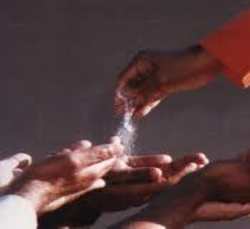In Addition
Vol 3 Τεύχος 1
January 2012
Learn to Love Fevers, Not Fear Them
One of the biggest misconceptions in health care today is the role of fevers. Through misunderstanding, many parents fear fevers, when they should love and respect them. A fever is one of the most extraordinary and intricate healing processes in the body. It plays out like a symphony, orchestrated only when needed to stimulate an immune response, destroy invading organisms and promote the restoration of health. The American Academy of Paediatrics voiced concerns in a 2011 study, concluding that parents need to understand the fever itself is not endangering to a healthy child. In contrast, it's actually beneficial and the primary goal of treatment should be to improve comfort, rather than lowering body temperature alone.
Traditionally, fevers were respected and understood. People knew that the fever would build and then break, like a wave rolling into shore. Now, without knowing or understanding the process, most try to suppress it immediately using antipyretics, or substances that lower temperature, such as acetaminophen, aspirin and ibuprofen. These substances are commonly referred to as fever reducers. Fever reducers may quickly lower temperature, but in doing so they silence the body, hinder immune system development, allow the invader to survive and potentially induce chronic disease development.
Fever reducers are often misused, incorrectly administered or excessively dosed as well. Fifty percent of parents consider a temperature of less than 100.4°F is a fever and 25% of caregivers administer an antipyretic then, before the temperature actually reaches fever status. More disturbingly, 85% of parents report waking a sleeping child to administer antipyretics. 80% of paediatricians disagree with this practice. The physiologic healing that occurs while sleeping far surpasses the desire to simply lower the fever.
Modern medicine has lead us away from our bodies. Through its symptom-targeted treatments, patients have learned to expect immediate results. This is even truer when loving parents are concerned for their children. Treating symptoms without treating the cause is like taking the batteries out of the fire alarm, while the house burns down. It is essential to teach parents and children to listen and interpret these signs from the body, not just focus on removing of them.
A fever is defined by an oral temperature exceeding 100.4° F. They are usually self-limiting and short in duration. There is no evidence of fevers worsening the course of the illness or causing long- term neurological complications. It is important to understand, that the fever itself is not a disease, but rather a symptom of an underlying disharmony.
As human beings, we want to stay alive. This is true on all levels. Mentally, physically, physiologically, and biologically, we function to promote life. Once this is understood, it's easy to grasp that a fever is a physiologic process the body uses to fight infection, thus promoting survival or life. When an invader (virus, bacteria etc.) enters the body, signals are sent to the brain to increase the hypothalamic "set point". This essentially turns up the thermostat for a few days to kill the intruder. Signals can come from bacterial toxins or the body's response to the intruder, i.e. the production of cytokines, chemical mediators, macrophages, and antibodies. The temperature increase also enhances the immune system Inflammation is stimulated to protect the area, prevent the spread of infection and initiate the healing process.
Always consult a physician when fevers exceed 102°F or last longer than three days. A cold compress or an ice pack is very helpful. Also consult if the fever causes great discomfort, breathing difficulty, stiff neck, convulsions or any time you are unsure. Proper hydration and salt replenishment are essential to support the body. ...L. Chimileski for http://www.naturalnews.com
(Also consult your remedies book for the appropriate healing remedy for fever and for related remedies)
HEARING LOSS
It is frustrating not to hear well enough to enjoy talking with friends or family. Hearing disorders make it hard, but not impossible, to hear. They can often be helped. Deafness can keep you from hearing sound at all.
What causes hearing loss? Some possibilities are:
-
Heredity
-
Diseases such as ear infections and meningitis
-
Trauma
-
Certain medicines
-
Long-term exposure to loud noise
Aging
There are two main types of hearing loss. One happens when your inner ear or auditory nerve is damaged. This type is permanent. The other kind happens when sound waves cannot reach your inner ear. Earwax build-up, fluid or a punctured eardrum can cause it. Untreated, hearing problems can get worse. If you have trouble hearing, you can get help. Possible treatments include hearing aids, cochlear implants, special training, certain medicines and surgery
...NIH: National Institute on Deafness and Other Communication Disorders
(Check 108 Common Combos book under category 5 ‘Ears’ or Vibrionics 2004 book - SRHVP 3.5)
PROSTATE DISEASES
The prostate is a gland. It helps make semen, the fluid that contains sperm. The prostate surrounds the tube that carries urine away from the bladder and out of the body. A young man's prostate is about the size of a walnut. It slowly grows larger with age. If it gets too large, it can cause problems. This is very common after age 50. The older a man becomes, the more likely he is to have prostate trouble.
Some common problems are:
Prostatitis - an infection, usually caused by bacteria
Benign prostatic hyperplasia, or BPH - an enlarged prostate, which may cause dribbling after urination or a need to go often, especially at night
Prostate cancer - a common cancer that responds best to treatment when detected early
...National Institute of Diabetes and Digestive and Kidney Diseases
(Check 108 Common Combos book under category 14 ‘Male organs’ or Vibrionics 2004 book - SRHVP 3.14)
-
Om Sai Ram
